
Alumni Profiles
Dr. Kelly Walker
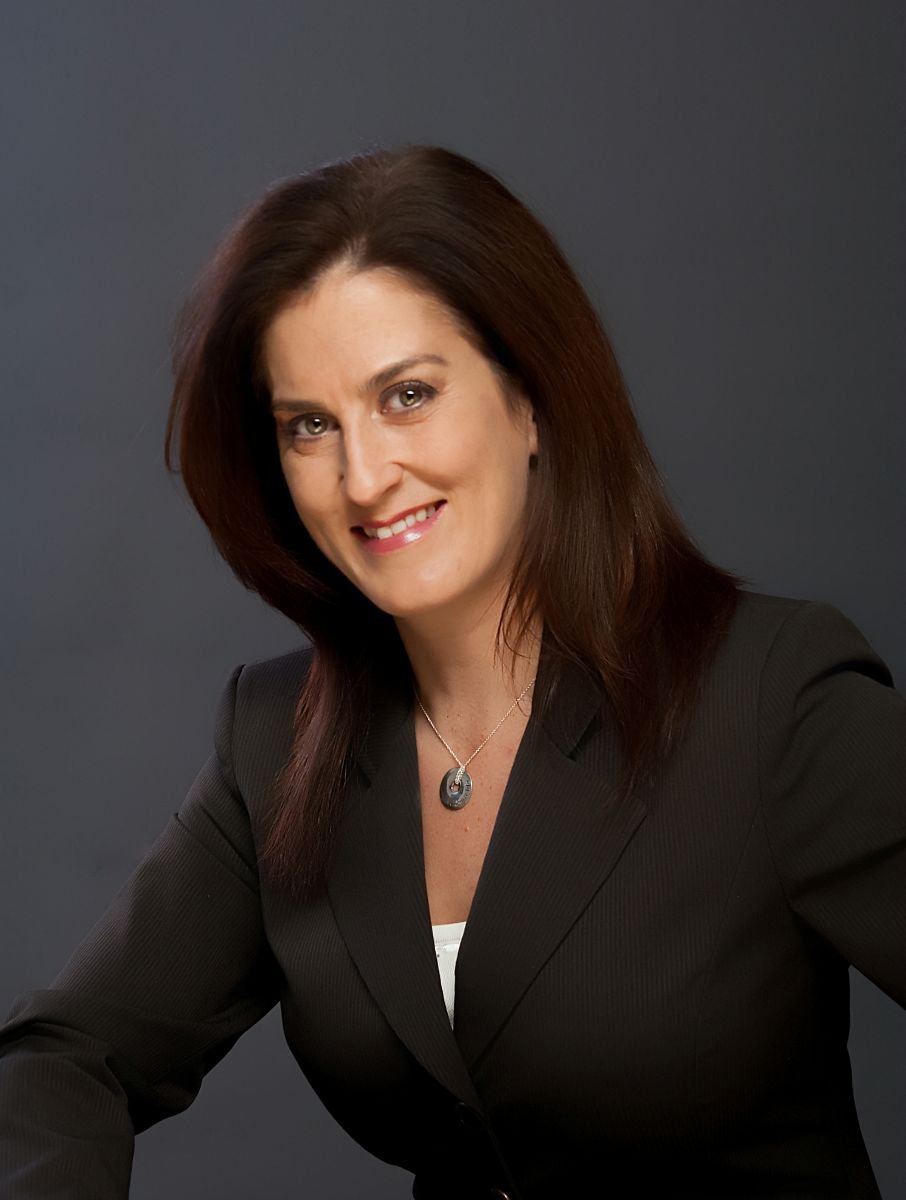 After graduating from Union, Dr. Kelly Walker pursued her podiatric medical training at Barry University in Miami Shores, Florida. She then earned her Doctorate in Podiatric Medicine (DPM) and completed residency training at the Department of Veterans Affairs Medical Center in West Roxbury, Massachusetts and HealthSouth Surgery Center in Mesquite, Texas. In 2010, she opened Walker Foot and Ankle, her own podiatry practice in Ennis, Texas.
After graduating from Union, Dr. Kelly Walker pursued her podiatric medical training at Barry University in Miami Shores, Florida. She then earned her Doctorate in Podiatric Medicine (DPM) and completed residency training at the Department of Veterans Affairs Medical Center in West Roxbury, Massachusetts and HealthSouth Surgery Center in Mesquite, Texas. In 2010, she opened Walker Foot and Ankle, her own podiatry practice in Ennis, Texas.
Which professor had the biggest impact on your experience at Union? I believe it would be a close tie between Dr. Charles Baldwin and Mrs. Elsie Smith. Dr. Baldwin taught me to persevere the path to a medical career, while Mrs. Smith encouraged me to explore the field of podiatry.
What influenced you to choose this career path? The encouragement of Mrs. Smith to have me learn more about the field of podiatric medicine. I shadowed a local podiatrist and learned the diversity of clinical and surgical treatment options for various foot and ankle conditions. I also appreciated the fact that most patients walk out of the office feeling better than they did when they came in. It is a rewarding specialty.
What was the hardest part about getting to where you are now? Of course, long days and nights of preparing for exams, boards, and residency interviews were challenging. When I graduated from podiatry school, there were more students than residency positions available. This was an extremely stressful and competitive time in my education and early career. Once I had secured my residency positions in Massachusetts and then in Texas, I had to prove my competency as a resident. I arrived early to the hospital or surgical center to prepare the patient and the surgeon for surgery. I interviewed the patient, reviewed their medical history, examined the patient, prepared the paperwork, then discussed the case with the surgeon. Sometimes, other residents from other programs showed up for the same case. The surgeon would quiz us as we scrubbed in, and the resident who was quickest on their feet with knowledge of the condition/procedure was allowed to assist the surgeon.
Do you have any advice for current undergraduate students? Be diverse in your education, and take more than just the pre-requisite courses for the pre-med program. Take business, psychology, and sociology courses and anything else you may be interested in. Medicine certainly encompasses all of these areas, but they are not often covered while you are in medical school. Stay true to your Christian beliefs, morals and ethics, as they will be challenged quite frequently.
Dr. Omar Hamada
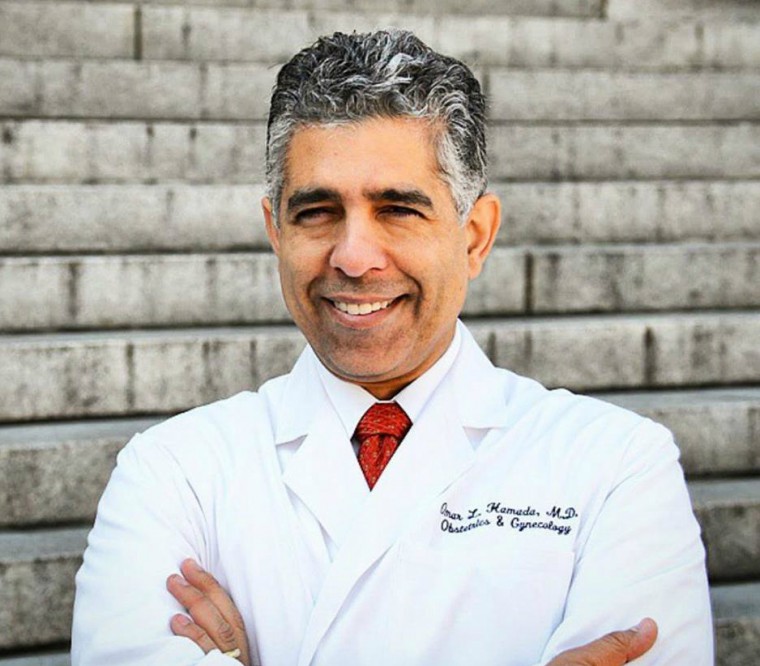 This semester our Alumni Profile is on Dr. Omar Hamada ‘86. Dr. Hamada received a BS in Biology, Chemistry, and Music. After graduating from Union he continued his studies and received many degrees such as: BS, MD, MBA, Cert in Biblical Studies and Missions, MATS. The list continues: ABMS Board Certified in OB/GYN and in Family Medicine, Board Eligible in Sports Medicine, fellow of American Congress of Obstetricians and Gynecologists, Fellow of American Academy of Family Physicians, Fellow International College of Surgeons, US Army Special Forces certifications in Flight/Aerospace, Diving/Hyperbarics, and additional training in Wilderness/Tropical/Bio-Chem Warfare. Dr. Hamada has done so many incredible things and he doesn’t know how he had the time to do it all but he kept his goals and kept moving. He owes his success to God and his family who supported him along the way. “I always wanted to be a great dad and husband,” he says. He and his wife Tara have been married for 20 years and have four beautiful and wonderful kids: Gabriella (15), Annelise (11), Nicholas (10), Josiah (6).
This semester our Alumni Profile is on Dr. Omar Hamada ‘86. Dr. Hamada received a BS in Biology, Chemistry, and Music. After graduating from Union he continued his studies and received many degrees such as: BS, MD, MBA, Cert in Biblical Studies and Missions, MATS. The list continues: ABMS Board Certified in OB/GYN and in Family Medicine, Board Eligible in Sports Medicine, fellow of American Congress of Obstetricians and Gynecologists, Fellow of American Academy of Family Physicians, Fellow International College of Surgeons, US Army Special Forces certifications in Flight/Aerospace, Diving/Hyperbarics, and additional training in Wilderness/Tropical/Bio-Chem Warfare. Dr. Hamada has done so many incredible things and he doesn’t know how he had the time to do it all but he kept his goals and kept moving. He owes his success to God and his family who supported him along the way. “I always wanted to be a great dad and husband,” he says. He and his wife Tara have been married for 20 years and have four beautiful and wonderful kids: Gabriella (15), Annelise (11), Nicholas (10), Josiah (6).
Where did you go after graduating from Union? I started off a bit young. I was accepted into med school at 19. I hadn’t learned how to do anything but cram so I flunked out my first year. The folks at UT understood the situation, so they gave me the option of showing them I really wanted to be there. So after seminary in Columbia, SC, I was allowed to return to UT. I resumed my medical studies, became class president, did immunology research at St Jude, and neuroanatomy research at UT while also working in clinical Neurosurgery (NSR). I had found my calling. At the time, I was in the Army and had scheduled my clinical rotation at Tripler Army Hospital in Honolulu during January and February. My orders didn’t come through at the last minute, so I scrambled and ended up in Milan. I thought my life was over! Milan instead of Honolulu in January! Ugh. What I didn’t realize was how great these docs were. They completely changed my mind about Family Medicine. But I was still going to do NSR. After my rotation, I accepted a new accelerated residency that combined the 4th year of med school with an internship. After the first year, I finished my Family Medicine residency and then joined UT faculty as the Assistant Director of Predoctoral Affairs. Eventually I was promoted to Director, although I missed the OR. I had gotten married by this time and my wife, Dr. Tara Newton Hamada begged me to not go back and do NSR so I accepted a 2nd year position as an OB/GYN resident. As part of the deal, I maintained my Assistant Professorship and was a Primary Care Consultant to the Department of OB/GYN, which turned out to be a fantastic residency. Since I was now also in the US Army Special Forces, (Airborne) – the “Green Berets” – I was allowed to grandfather in to a certification in Sports Medicine and received further certifications and experience in Flight and Aerospace, Deep Sea and Hyperbarics, and Tropical and Wilderness Medicine. From the medical side, I’m now the TeamHealth Director of Emergency Medicine at Maury Regional Medical Center in Columbia, TN. We have 30 beds, with 50,000 annual visits to the ER.
Did you always want to do what you are currently doing now? Life takes so many unexpected twists and turns. I would have never dreamed that I’d be doing what I’m doing now. I’ve always wanted to do a lot of things. Medicine was but one. I wanted to preach and be on church staff – I graduated from seminary and got ordained as a Southern Baptist minister and have had Drs. Adrian Rogers and Leighton Ford (Billy Graham’s brother-in-law) as close friends and dear mentors for 10–20 years, respectively. They absolutely changed my life. I’ve wanted to sing and play trumpet professionally – I was part of Phi Mu Alpha Sinfonia while at Union, trained at the Met in NY and at the Wiener Staatsoper in Vienna as well as at Vanderbilt’s Blair School, toured Europe, and even got an offer from the Julliard School and the Christian music group Truth. I’ve wanted to be a “tip-of-the-spear” soldier in a Tier 1 unit like Seal Team 6. The Special Forces was as close as I got. Though I spent close to 15 years in the military, I wish I was still in. But I think Tara had all she could take. Ever since I was 5, I’ve wanted to change the world for the sake of Christ so that all may hear and believe. This is my singular driving motivation in all I do or will ever do. Then there’s the MBA. Getting an MBA from a ranked school changed my life. It opened up a whole new world of possibilities and awareness.
Which professor had the biggest impact on your experience at Union? How? I’d say Mrs. Elsie Smith, Dr. Michael McMahan, and Dr. Jimmy Davis. Mrs. Smith believed in me and always pushed me to do better. Her level of excellence in the classroom set a high bar for all of us to achieve. However, she didn’t know this until now, but the biggest impact she had on me was a conversation I overheard her having about me with a fellow classmate of mine when I was sitting outside her office regarding her doubts about my ability to cut it in med school because of my age. That probably drove me to succeed for years to prove her wrong. So, I’m glad for it. Drs. Davis and McMahan also believed in me, told me so, encouraged me, and pushed me to improve time and again. Their positive affirmations kept me up when times were rough. Their examples in and out of the classroom and the lab let me know they truly cared about me and what happened to me. This stuck with me for years after I left Union.
What was the hardest part you had to go through to get to where you are now? The hardest parts for me were those times I felt as though God had abandoned me and I wasn’t enough. The times of failure. The times of deep grief. The times of rejection. When I went through medical school failure, when I learned of a devastating personal diagnosis, when I had a broken engagement the day before my wedding. What I’ve learned is that He never leaves. I do. And that there will always be problems. There are times I’ve allowed the pain to take me down the wrong path. What I’ve learned is to lean hard in to Him, learn who I really am behind the façade, be authentic and transparent, love others well, see past the veil, make no excuse for sin. The secret is unwavering perseverance with grace and courage.
Any advice for students doing their undergrad now? The Lord gives us all various gifts and abilities. He gives us all different capacities. I’m one who was fortunate for my 6 Ms – Marriage, MBA, Medicine, Military, Ministry, and Music. Many have criticized me for my “lack of focus”. They want me to simply choose one thing and do nothing else. They just don’t get it. I live passionately and fully with gregarious engagement in all that I do. The most miserable I’ve been in life have been the times that I have tried to make other people happy, when I have tried to live my life for another’s approval. The only approval you should seek is the Lord’s. Be who He made you – and be ALL He made you to be. Stop trying to be someone you’re not to please someone else – who ever they are. Also, recognize pain and suffering as a gift. It is only through this that we change – and change for the better. Don’t bend towards bitterness and hurt, allow the Lord to perfect who you are for the sake of the Gospel. Pain is a gift. That’s the only way to grow. Where do you see yourself in the future? I’ve got goals for the rest of my life for as long as the Lord allows me to live. I’ll never stop learning. I’ll never stop growing. I’ll never stop trying to advance God’s Kingdom in this world. In the immediate future, Jay Sekulow has recently invited me to be to be a Fellow and Visiting Lecturer at the Harris Manchester College of Oxford University later this year.
Ten years from now? I don’t know. Perhaps the US Senate? (Yes, I do have political aspirations.) Perhaps a church plant? Founder and CEO of several successful startups? Certainly a Godly husband and father. My ultimate goal is to change the world.
Dr. James Layton
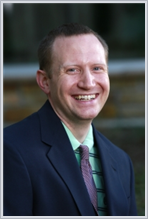
This fall semester our featured Alumnus is Dr. James Layton. James is currently a pediatric anesthesiologist at Arkansas Children’s Hospital. He also is a professor at Pulaski Tech’s Anesthesiology Technologist training program. After graduating from Union he attended Medical School at the Quillen College of Medicine (ETSU) from 2004-2008, followed by an Anesthesiology Residency at the University of Alabama in Birmingham. In 2012 he was in the Pediatric Anesthesiology Fellowship Program at the University of Arkansas for Medical Sciences. James is happily married to Carlyn Layton and is the father of four beautiful children; Luther (7), Pearl (6), Calvin (4), and Knox (1).
I recently asked James about his personal experience at Union and his journey to getting where he is today.
Did you always want to do what you are currently doing now? Not always. Science was always my favorite subject, and in grade school I thought I wanted to be an ecologist or zoologist. However, I became convicted in 9th grade that I should pursue a career that I felt would allow me to more directly help other people and further the gospel message. That is when I felt led to pursue a career as a physician. I really wasn’t sure what kind, but wanted to do something that would be useful for mission work. My initial thoughts were surgeon or primary care physician. Quillen College of Medicine seemed like a good choice because one of their mission statements is to train rural primary care doctors. However, my wife and I went on a medical mission trip to Yemen the summer after we graduated from Union, and it was during this experience that I realized that of the many medical shortages that exist in underdeveloped nations, pediatric physicians were in need. I felt that this was an experience God was using to direct my path. In my 3rd year of medical school, I was exposed to anesthesiology and knew immediately it was the field for me. I really enjoyed the hands-on procedural component of the field as well as witnessing real time physiology from medications I gave. At this point, God willing, I planned to pursue a residency in anesthesiology and then a fellowship in pediatric anesthesiology. This path would have given me subspecialty training with an emphasis in pediatric care, which I believed would be useful in serving the Lord in overseas medical work in the future. Thus far, I have been able to stick to this plan.
Which professor had the biggest impact on your experience at Union? How? Dr. Huggins. Few people exude the love of Christ in their speech, action and how they treat those around them as well as Dr. Huggins. It was clear from the time I met him that this man loved the Word. He used his natural inclination toward science as a platform to give glory to the true Creator of heaven and earth. He is a true Christian role model for those who desire to serve the Lord through the field of science.
What was the hardest part of getting where you are now? There were many challenging times during my training. Most days during the first two years of medical school, I studied more hours a day than I slept. The 3rd and 4th years of medical school were the clinical years, with long clinical hours during which there was a lot of pressure to know answers that attendings would ask on ward rounds, as well as study for each specialty exam and boards. The beginning of residency was very stressful, because then I had the ability to write orders and prescribe treatment plans. If I made a mistake that wasn’t picked up by a resident or attending, it could directly harm patients. This stress was intensified when I started my anesthesiology training, when there was the added stress of becoming proficient in life saving skills and keeping patient’s hemodynamically stable during surgical procedures. However, the hardest times by far were the intensive care unit experiences. There were a lot of really sick patients I was responsible for making appropriate medical decisions and performing procedures for. The hours were very long, often requiring 24-30 hours shifts, while trying to balance family life with my wife and then two small children, and be meaningfully involved in our church. I was stretched so thin that I felt like everything I did was suboptimal. Truly, I give all glory to God and his provision of an amazing wife and church family that I was able to excel in my training and finish with an intact family, which now includes four wonderful children.
Any advice for students doing their undergrad now? Take Eccl 12:13-14 to heart and find a church that faithfully and unapologetically preaches the word of God. There are many great people and experiences I was exposed to at Union, but by far the most important aspect of my time at college was the spiritual growth that occurred in my life at Cornerstone Community Church. Whichever church you are led to, take it seriously. Truly invest in it.
Where do you see yourself in ten years? More school? A different position? I plan to move overseas and use the knowledge and gifts God has given my family and me to serve Him faithfully. The specifics of this calling are still being worked out, but our desire is to be able to spread the kingdom of God to areas in which sharing the gospel has been difficult in the past.
Dr. Justin Hutto
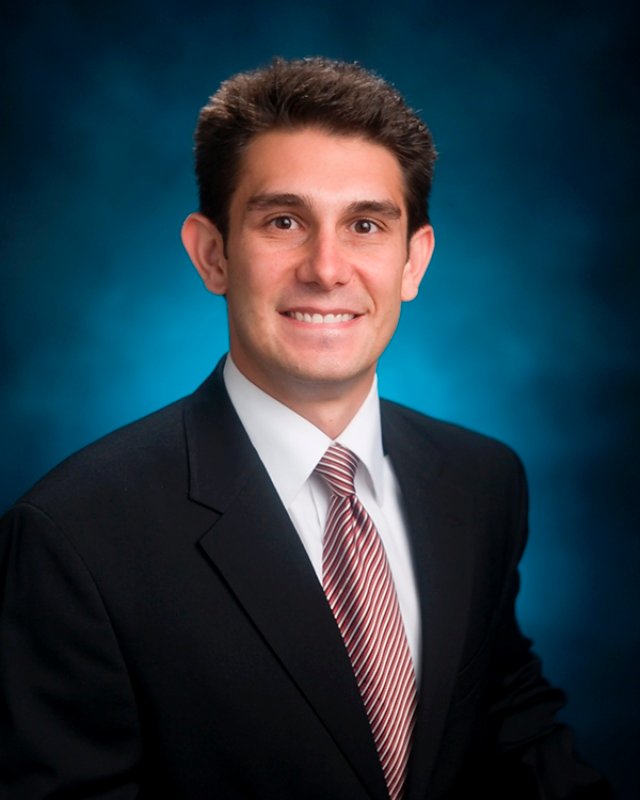 After graduating from Union, Dr. Justin Hutto attended medical school at Southern Illinois University and graduated in 2011. He then completed a Transitional Year Residency at the Baptist Health System in Birmingham Alabama and is currently finishing up his third year of residency in Diagnostic Radiology at the University of Alabama Birmingham. Justin had a lot of good things to say about Union, his experience that helped him get to where he is now, and the professors that had a huge impact on it.
After graduating from Union, Dr. Justin Hutto attended medical school at Southern Illinois University and graduated in 2011. He then completed a Transitional Year Residency at the Baptist Health System in Birmingham Alabama and is currently finishing up his third year of residency in Diagnostic Radiology at the University of Alabama Birmingham. Justin had a lot of good things to say about Union, his experience that helped him get to where he is now, and the professors that had a huge impact on it.
-Which professor had the biggest impact on your experience at Union? How? Looking back, Dr. Carol Weaver had the biggest impact on me while at Union. I found her classes very challenging, but also very interesting. She always had very high expectations which pushed me to be a better student. Her tests and numerous projects were always detail oriented and very thorough, forcing you to learn the material very well and stay disciplined throughout the semester if you wanted to be successful. I feel like a lot of the successes I had during medical school, including being voted into the national medical honors society Alpha Omega Alpha, were in part because of the many things I learned while taking her classes at Union.
-What was the hardest part you had to go through to get to where you are now? The hardest thing I have had to accomplish thus far in my life is learning how to find a balance between managing a very busy work schedule and being a Godly husband and father. The first 24 years of my life were spent meeting my own needs whether they were spiritual, physical, or emotional; however, when you start a family you assume much greater responsibilities, and your priorities begin to change rapidly. Your life becomes devoted to providing for and meeting the needs of your family. The Bible holds the man accountable for his family and taking that call seriously is a constant battle.
-Did you always think you would be where you are at today? Not always. The first 18 years of my life were consumed with playing baseball. I was blessed with athletic ability and for much of my early life, I saw myself pursuing baseball as far as it would take me. An injury toward the end of my high school career really began to shift my goals in life and the Lord really used that situation to show me a different plan. Thankfully, I was also blessed with a great mind and amazing parents who pushed me academically and forced me to maintain excellent grades. I had always enjoyed the biological sciences and been fascinated by God’s creation and pursuing a career in medicine seemed like a great fit. Shortly after I had made a decision to pursue medicine over baseball, a family friend introduced me to the field of Radiology and I immediately fell in love with it. The Lord then led me to Union University, SIU, and UAB where my love for biology, medicine, and radiology has continued to grow. I could not be happier with the decisions I have made and have been blessed tremendously throughout my life thus far.
-Any advice for students completing their undergraduate degrees at Union now? I have several pieces of advice for undergrad students now. First, do what you love and not worry about what anyone else thinks or how long it is going to take you to get there. Getting to work in a career field that I love is a tremendous blessing that I know many people don’t get to experience. Secondly, I would remind students to keep their priorities straight. Yes, undergrad is the greatest four years of your life (it absolutely was for me), but at the same time you have to learn to discipline yourself and to work hard. Making good grades in college is pivotal for being competitive in a very tight job market. The decisions you make now will have a tremendous effect on not only your life but also the lives of your future spouse and children. Being able to provide for your future family should be great motivation to spend that extra hour studying when you really don’t want to. Always be mindful of Colossians 3:23 “Whatever, you do, work at it with all your heart, as working for the Lord, not for human masters.” Lastly, I would remind students to enjoy life to the fullest during undergrad. Graduating and moving on into the work force is exciting, but tough. Most people will never again get to live with a large group of their best friends and only have to go to class for a few hours a day. The relationships you build at Union you will treasure for the rest of your life. Take full advantage of your time on campus.
Katy Williams
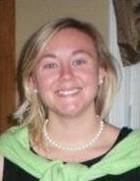 After graduating from Union, Katy Williams attended the University of Arkansas for Medical Sciences. She “thought it was a pretty challenging program that did really prepare [her] for the ‘real world’”.
After graduating from Union, Katy Williams attended the University of Arkansas for Medical Sciences. She “thought it was a pretty challenging program that did really prepare [her] for the ‘real world’”.
Where are you currently working? I technically work with the University of Tennessee Health Science Center in Memphis, but we do all of our clinics through LeBonheur Children’s Hospital.
Could you describe what it is that you do? I work with geneticists in their clinic. I’m essentially a go-between for the doctor and patients/families we see. I take family histories, go over the family’s concerns for the child we are seeing, and explain to them how the appointment will go. I may also bring families back in to go over test results and explain their diagnosis of a certain genetic disorder to them. When I’m not in clinic, I’m scheduling clinics, reporting results to families, writing follow-up letters, and tracking down patient information. I also do newborn screen (NBS) follow-up for all of West Tennessee. We get the reports of any abnormal newborn screen for any baby born in the area. We then either have the test repeated or get the child in for additional testing.
How hard was it to prepare for this position? I think the hardest part about getting here was finding out what I had to do to become a genetic counselor. Training to become a genetic counselor requires a Masters in genetic counseling. Getting into a grad program can be challenging; there are currently only 31 genetic counseling programs in the US. In order to even get an interview at the programs, you must have taken the GRE, done some kind of advocacy work, and have shadowed a genetic counselor as well as having good grades in college. Once you do get into a program, it just becomes about surviving grad school…doing well in classes, passing clinical rotations, and completing a thesis.
What are your future goals or career goals? Biggest goal right now is to pass my Boards in August to become a certified genetic counselor. I am fortunate enough to work in a field that really encourages you to [gain experience before becoming] certified. I [also] really want to get the career of genetic counseling out in the public eye. I think it is a wonderful, growing field and there is a real need for more genetic counselors. I’m so glad that you guys are featuring it in your newsletter. You are helping me reach one of my goals in a way! Another goal I would like to accomplish in the next few years is to research how integrating different forms of media might impact a patient’s understanding of the genetic information we are covering in a counseling session. I’m also really interested in setting up a genetic counseling-only clinic like one that was set up at Vanderbilt to aid with the doctors’ patient load.
What influenced you to take this career path? I knew from a young age that I was interested in genetics. I had an exceptional biology teacher in high school who really sealed the deal for me. Getting to college I knew I was going into biology. My mom had suggested genetic counseling since she knew I also liked helping people out. At Union, Dr. Weaver really took me under her wing helping me decide what classes would most prepare me for grad school and what internships to do. I came to a crossroads my junior year of college where I was trying to decide if I wanted to do research or work in a clinic. I did an internship over that summer and knew for sure I wanted to do clinical work. I missed working with people when I was in the lab! From then on it was all about getting into genetic counseling programs and I haven’t looked back.
Do you have a favorite professor from Union that influenced you in a positive way? Dr. Weaver has really done so much to push me to become what I am over the years. She likes to check in on me too and has been kind enough to let me speak to her classes on more than one occasion to discuss a career in genetic counseling. I also love Dr. McMahan. His vertebrate class really helped me to learn how to study my freshman year. He is just a wonderfully sarcastic professor that I enjoy talking to when I have the chance.
Dr. Kerstin Ure
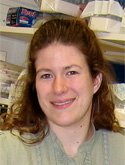 Dr. Kerstin Ure attended Union from 2001-2004. After graduating from Union, Kerstin went on to earn her PhD at the University of Texas Southwestern in Dallas, TX. Her dissertation project involved looking at neurogenesis in the hippocampus of mice. In 2010 she moved to Baylor College of Medicine in Houston, TX for her postdoctoral work. She has received many awards both at Union and University of Texas Southwestern for her research done in neuroscience. She also has been featured in many journals, such as in the Journal of Neuroscience. Kerstin is currently working on various projects that revolve around a disorder called Rett Syndrome. Rett syndrome is an autism spectrum disorder that affects mainly young girls and is caused by a mutation in the Mecp2 gene. Working with mice, she is able to examine specific neurons in the brain called GABAergic neurons. These neurons inhibit parts of a signaling system in the brain. She is writing a paper on the findings of Mecp2 and the effects of its expression in male and female mice.
Dr. Kerstin Ure attended Union from 2001-2004. After graduating from Union, Kerstin went on to earn her PhD at the University of Texas Southwestern in Dallas, TX. Her dissertation project involved looking at neurogenesis in the hippocampus of mice. In 2010 she moved to Baylor College of Medicine in Houston, TX for her postdoctoral work. She has received many awards both at Union and University of Texas Southwestern for her research done in neuroscience. She also has been featured in many journals, such as in the Journal of Neuroscience. Kerstin is currently working on various projects that revolve around a disorder called Rett Syndrome. Rett syndrome is an autism spectrum disorder that affects mainly young girls and is caused by a mutation in the Mecp2 gene. Working with mice, she is able to examine specific neurons in the brain called GABAergic neurons. These neurons inhibit parts of a signaling system in the brain. She is writing a paper on the findings of Mecp2 and the effects of its expression in male and female mice.
Which professor had the biggest impact on your experience at Union? How? “While all of the Union professors had an impact on me, probably the largest and most long lasting impact was from Dr. Carol Weaver. Keeping in mind my dream of becoming a scientist, she helped me design a course load that best prepared me for a future in basic research. She also suggested doing summer research at St. Jude and helped me get accepted to their program, which was critical not only to getting into graduate school but to proving to me that research was what I wanted to do and that I was capable of doing it. She was tremendously supportive and contributed a great deal to my development as a scientist and as a person.”
What was the hardest part you had to go through to get to where you are now? “Truthfully, it's all been hard. Science is not a job, it's a lifestyle. It can be all-encompassing and very lonely life, but when things work or you have a fascinating piece of data, it is exhilarating. The hardest part is getting through months of lab work that seems to be going nowhere for that one moment of epiphany and success.”
Any advice for students doing there undergrad now? What is something you wish you knew when you were doing your undergrad that you know now? "I wish I had realized much earlier that in life and in science, there are often no right answers. There are many, many directions to go, but as long as your life is spent in the service and glory of God, you are in the right place. What worked for one person may not work for you, but in going your own way it is almost inevitable that you will disappoint people. This is not always a bad thing; some people you should disappoint. Keep in mind that mistakes are inevitable, but what is really important is how you respond to them and what you learn from them. Knowing this would have saved me a lot of pain and stress.”
Dr. Lee Holt
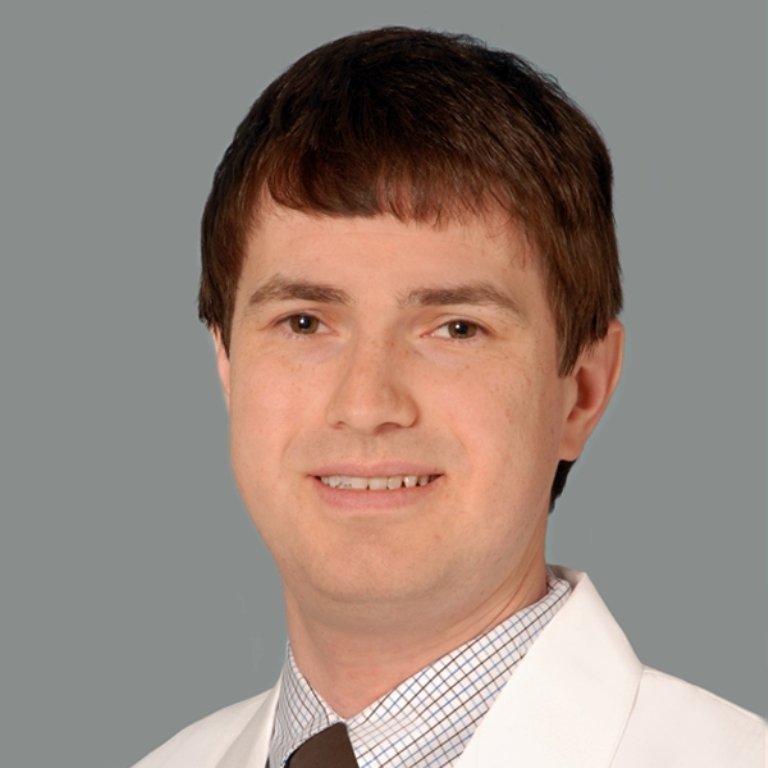 During his undergraduate career at Union University, Dr. Lee Holt was awarded the Academic Excellence Award for Biology in 2003. After graduating from Union, he attended the University of Tennessee College of Medicine in Memphis. He graduated from medical school and completed a Transitional internship at Methodist University Hospital in Memphis. He then did his radiology residency at Baptist Memorial Hospital, also in Memphis. Dr. Holt currently lives in Nashville where he started a fellowship in nuclear medicine at Vanderbilt University in July 2012 and will finish in June 2013. This fellowship encompasses general nuclear medicine including endocrine studies and cardiac imaging with additional emphasis on cancer imaging with positron emission tomography (PET).
During his undergraduate career at Union University, Dr. Lee Holt was awarded the Academic Excellence Award for Biology in 2003. After graduating from Union, he attended the University of Tennessee College of Medicine in Memphis. He graduated from medical school and completed a Transitional internship at Methodist University Hospital in Memphis. He then did his radiology residency at Baptist Memorial Hospital, also in Memphis. Dr. Holt currently lives in Nashville where he started a fellowship in nuclear medicine at Vanderbilt University in July 2012 and will finish in June 2013. This fellowship encompasses general nuclear medicine including endocrine studies and cardiac imaging with additional emphasis on cancer imaging with positron emission tomography (PET).
Dr. Holt is extremely grateful for the preparation he received while at Union. He stated, “The unique aspect of Union for me was that I felt I was not just working under my professor’s guidance, but that they were working alongside me to make sure I was understanding the material. All of my biology professors mentored me in different ways and gave me good advice about my career endeavors and life in general. I trusted their advice and judgment because I knew they were all God-fearing men and women.” When asked about Dr. Holt’s time at Union, Dr. Carol Weaver replied, “his attention to detail, his seriousness for doing his best, his ability to critically analyze and solve problems, and his innate talents have always made me give him the highest compliment a teacher of pre-med aspirants can give a student: when I have a need for his medical specialty, I want Lee to be my doctor.”
Dr. Gene Stevens
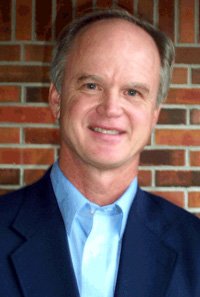 Dr. Gene Stevens, a current faculty member at the University of Missouri in Columbia, spoke at Union University March 28, 2012, on recent agricultural research that he has been conducting in Africa. However, Dr. Stevens is no stranger to the Union University Campus, having graduated from Union in 1979. While attending Union he obtained an internship with the University of Tennessee Agricultural Center, where he gained agricultural experience working with soil. This undergraduate experience led to a research assistantship in Knoxville. Since that time, Dr. Stevens has been involved with research projects that include the testing of soils and their proper utilization. One of his more significant research projects focused on agricultural water loss control in areas that lack adequate water supply, such as in poor countries like South Africa. The research farm that Dr. Stevens and his colleagues set up in South Africa focused on an increase in rice production, at which point he and his colleagues turned their work over to Texas A&M University for further follow up study. According to Dr. Stevens, "We start a project and get it up and running. Then, we quickly turn it over to another group who is capable of following up on what research we have already performed, and move on to the next project.
Dr. Gene Stevens, a current faculty member at the University of Missouri in Columbia, spoke at Union University March 28, 2012, on recent agricultural research that he has been conducting in Africa. However, Dr. Stevens is no stranger to the Union University Campus, having graduated from Union in 1979. While attending Union he obtained an internship with the University of Tennessee Agricultural Center, where he gained agricultural experience working with soil. This undergraduate experience led to a research assistantship in Knoxville. Since that time, Dr. Stevens has been involved with research projects that include the testing of soils and their proper utilization. One of his more significant research projects focused on agricultural water loss control in areas that lack adequate water supply, such as in poor countries like South Africa. The research farm that Dr. Stevens and his colleagues set up in South Africa focused on an increase in rice production, at which point he and his colleagues turned their work over to Texas A&M University for further follow up study. According to Dr. Stevens, "We start a project and get it up and running. Then, we quickly turn it over to another group who is capable of following up on what research we have already performed, and move on to the next project.
"Dr. Stevens also worked on a project in which genes for a particular drug were introduced into tobacco plants under vacuum. During this time, the genes introduced would be absorbed into the leaves. The leaves could then be harvested in order to produce helpful drugs or vaccines.
Dr. Stevens recently received the USA Rice Producers Award, presented to a researcher from the United States who has had the most impact on rice research during the year. During 2012, UT will also award Dr. Stevens with the Biological Systems and Soil Science Department Alumni Award. When asked about receiving the award in the upcoming months, Dr. Stevens commented that he had no idea they knew about his research until they called him and informed him. "That's why it is so crucial to publish your work," Dr. Stevens says, who asserts that many researchers underemphasize this part of the process.
Dr. Stephanie Mabry Perkins
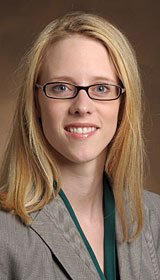 As an undergraduate student, Dr. Stephanie Mabry Perkins earned dual degrees in biology and chemistry. Upon graduating from Union in 2001, she attended medical school at The University of Tennessee Health Science Center in Memphis, followed by a residency in Radiation Oncology at Washington University in St. Louis.
As an undergraduate student, Dr. Stephanie Mabry Perkins earned dual degrees in biology and chemistry. Upon graduating from Union in 2001, she attended medical school at The University of Tennessee Health Science Center in Memphis, followed by a residency in Radiation Oncology at Washington University in St. Louis.
Dr. Perkins currently is serving as an Assistant Professor in radiation oncology at Vanderbilt University's School of Medicine. Through her current position, she is able to treat cancer patients with radiation therapy. She primarily is treating pediatric malignancies, lung cancer, and adult brain tumors. Dr. Perkins is involved in research projects with the Children's Oncology Group, a national group that designs clinical trials for childhood cancers.
She said she feels that the classes at Union were very challenging, but the faculty were always very supportive and encouraging. Additionally she indicated that, due to the preparation that she received at Union, she did well in medical school and was able to be matched into a competitive specialty.
Two of her favorite courses while an undergraduate student at Union were histology and gross anatomy, taught by Dr. James Huggins. She said that histology was one of the toughest courses in medical school and she was able to do well because of the experience she gained from Union. One of her favorite memories while studying in the biology department was the opportunity to visit the St. Louis Zoo with Dr. Michael McMahan.
Jil Konkol
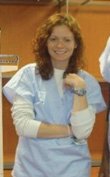 After graduating from Union in 2007, Jill Konkol was accepted to Wake Forest University School of Medicine. Currently starting her fourth year, Jill has already enjoyed a wide variety of experiences in the medical field. While her first two years of medical school focused on medical education, Jill is spending the second two years involved in direct patient care at Wake Forest University Baptist Medical Center. Medical students have the opportunity to experience areas of medicine such as Pediatrics, Surgery, OB/ Gyn, and Internal Medicine.
After graduating from Union in 2007, Jill Konkol was accepted to Wake Forest University School of Medicine. Currently starting her fourth year, Jill has already enjoyed a wide variety of experiences in the medical field. While her first two years of medical school focused on medical education, Jill is spending the second two years involved in direct patient care at Wake Forest University Baptist Medical Center. Medical students have the opportunity to experience areas of medicine such as Pediatrics, Surgery, OB/ Gyn, and Internal Medicine.
At the moment, Jill is serving with the Geriatric unit of the medical center and is enjoying the time she is able to spend with patients. Jill feels that the daily challenges of patient care thoroughly test both her medical knowledge and ethical standings. These challenges are a huge part of medical education and are a major component for preparing students of the medical fi eld. While medical schools allows for students to experience a wide range of specialties, Jill's current goal is to become a primary care physician. Jill hopes to be able to see patients frequently enough to build close relationships with them and aid them in maintaining long term health. She is also thinking of working to fulfi ll one of the many underserved areas in our country. The potential shortage of primary care physicians in the near future is another driving factor in her decision.
Jill feels that her time at Union aided her in her preparation for medical school in many different ways. The classes offered at Union provided valuable base knowledge that made the daunting amount of required medical information easier to handle. Jill also credits a number of professors for their hand in her preparation. Because Gross Anatomy is one of the fi rst courses taken by medical students, Dr. Huggins' Gross Anatomy course was invaluable to Jill's medical education. Dr. Weaver's Genetics, Dr. Wofford's Developmental Biology, and Mrs. Smith's Immunology courses were all important and provided relevant information to her medical education. Classes with Dr. McMahan prepared her for the attention to detail that is required of medical students. Also, her time with the cross-country team prepared her for enduring long work shifts with little rest.
When asked if she had any advice for current Union students, Jill emphasized the importance of having a well-rounded life. She encourages students to enjoy activities outside of school and work. Take breaks and enjoy life, or you will burn yourself out before you reach your goal. Jill is thankful to everyone who aided her in her journey at Union and wishes current students the best of luck in reaching their goals.
Dr. Mike U. Smith
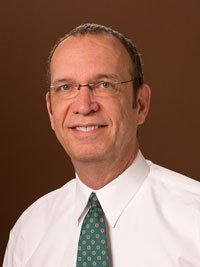 Dr. Mike U. Smith, Ph.D. (Class of 1972) was one of 486 scholars nationwide recently named as Fellows of the American Association for the Advancement of Science (AAAS). Dr. Smith received this distinction “for distinguished research and leadership in teaching and learning genetics, problem solving, evolution, and the nature of science and for service in HIV prevention.” Only seven people in education nationwide received this honor for 2008.
Dr. Mike U. Smith, Ph.D. (Class of 1972) was one of 486 scholars nationwide recently named as Fellows of the American Association for the Advancement of Science (AAAS). Dr. Smith received this distinction “for distinguished research and leadership in teaching and learning genetics, problem solving, evolution, and the nature of science and for service in HIV prevention.” Only seven people in education nationwide received this honor for 2008.
Mike is Professor of Medical Education and Director of AIDS Education and Research at the Mercer University School of Medicine (MUSM), Department of Internal Medicine in Macon, GA where he has been on the faculty since 1985. Mike is also an adjunct professor of the Emory University Center for AIDS research in Atlanta.Mike also recently raised money and arranged for a shipment of $250,000 of medical supplies to be sent to the Baptist Hospital in Sanyati, Zimbabwe. Dr. Smith visited Baptist hospitals, seminaries, hospices, etc. in 2006 and established a program to send MUSM students to work in bush hospitals and clinics there as soon as the political situation stabilizes.
Mike is currently involved developing a program to teach youth with HIV to be peer counselors for other HIV+ teens. He is also the lead investigator in a program sponsored by the Centers for Disease Control and then Indian Health Service to revise a peer educator training curriculum he developed earlier for HIV/STD prevention among rural youth. The new curriculum, called Native STAND (Students Together Against Negative Decisions), will be tailored for Native American Youth across the US.
Mike has one son, Art, who is in the US Army Military Police and stationed in Korea. Mike has one grandson, Caleb Michael, born June 26, 2008.
Wesley H. Stepp
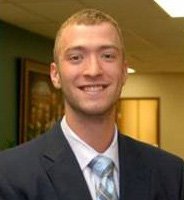 Wesley H. Stepp—Hunter, as many in the Union community know him— graduated from Union in the spring of 2008. Since his departure, he has experienced a world of opportunities, including a summer spent in France, broadening his horizons. Upon his arrival at Georgetown to pursue a master’s degree in the fall of 2008, he acquired a staff consultant position in environmental science with the EPA using the eco-toxicology and environmental chemistry background he received in his Union coursework and also began work on his master’s thesis. Having never studied virology in depth, he chose a mentor who is renowned in the scientific community for the study of hepatitis viruses.
Wesley H. Stepp—Hunter, as many in the Union community know him— graduated from Union in the spring of 2008. Since his departure, he has experienced a world of opportunities, including a summer spent in France, broadening his horizons. Upon his arrival at Georgetown to pursue a master’s degree in the fall of 2008, he acquired a staff consultant position in environmental science with the EPA using the eco-toxicology and environmental chemistry background he received in his Union coursework and also began work on his master’s thesis. Having never studied virology in depth, he chose a mentor who is renowned in the scientific community for the study of hepatitis viruses.
Coursework at the graduate level, although challenging, was much different than Hunter’s undergraduate experience. He believes the teachers at Union definitely prepared him for the rigors of graduate school in terms of information to know and the way that graduate schools test. In both regards, he felt himself to be well ahead of most of his peers due to that experience.
After major progress in his thesis work during the spring semester, Stepp learned that he would be able to graduate with his MS after only one year. In late March, he was accepted into the Ph.D program in the same department where he was completing his master’s work. Simultaneously, he was awarded a pre-doctoral fellowship appointment at the Naval Medical Research Center where he could complete his dissertation research for a Ph.D. In keeping with his busy personality, he also accepted a position to coordinate clinical research in the Department of Orthopaedics at the Walter Reed Army Medical Center.
For the next 3-5 years, Hunter will be in Washington DC finishing his doctoral degree and from there, the world is an oyster—so the saying goes. Ultimately, he would like to end up in one of two places: working either as a research professor at a university, or as a medical scientist (MD/ PhD) conducting translational medical research (research that takes lab work directly into patient care).
Jonathan and Melissa Gray
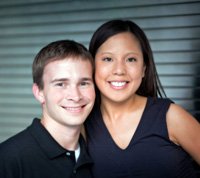 "The mind of man plans his way, but the Lord directs his steps". These words from Proverbs 16:9 are how Jonathan Gray chooses to describe the path his life has taken. Jonathan graduated from Union University in 2000 with a major in biology. Looking back, he asserts that he was well-prepared academically for a field that involved molecular biology and genetics. As a freshman, he hoped to pursue medicine but later changed his direction to research after doing his senior research project in the microbiology lab at Jackson-Madison County General Hospital. After graduation, he pursued a personal goal of working on the human genome project and was soon employed by Celera Genomics in Rockville, Maryland. During this time, Jonathan continued his education at Johns Hopkins University where he obtained a master's degree in biotechnology. Although he had the opportunity to work on the human genome, he wanted to conduct his own research with projects that would make a difference. This opportunity came through St. Jude Children's Research Hospital in 2002, where he was in more of a position to help children with a catastrophic disease, retinoblastoma. His role involved chemotherapy trials and bioinformatics, specifically with retinoblastoma cells and tissue. Jonathan also used microarrays to look for genes that have been amplified or deleted in retinoblastoma cells as well as using mouse models of cancer to study different genes that control the cell cycle in cancerous cells. While working at St. Jude was a unique opportunity, Jonathan found some factors that conflicted with his faith. In 2006, he joined Transnetyx, Inc. in Cordova, TN as an Assay Design Specialist where he uses molecular diagnostics to screen for researcher's genes of interest. Transnetyx has markets all over the United States as well as in Europe and performs genotyping using highthroughput automation. Jonathan currently resides in Collierville with his wife, Melissa Yau Gray, who also graduated from Union University with a major in chemistry.
"The mind of man plans his way, but the Lord directs his steps". These words from Proverbs 16:9 are how Jonathan Gray chooses to describe the path his life has taken. Jonathan graduated from Union University in 2000 with a major in biology. Looking back, he asserts that he was well-prepared academically for a field that involved molecular biology and genetics. As a freshman, he hoped to pursue medicine but later changed his direction to research after doing his senior research project in the microbiology lab at Jackson-Madison County General Hospital. After graduation, he pursued a personal goal of working on the human genome project and was soon employed by Celera Genomics in Rockville, Maryland. During this time, Jonathan continued his education at Johns Hopkins University where he obtained a master's degree in biotechnology. Although he had the opportunity to work on the human genome, he wanted to conduct his own research with projects that would make a difference. This opportunity came through St. Jude Children's Research Hospital in 2002, where he was in more of a position to help children with a catastrophic disease, retinoblastoma. His role involved chemotherapy trials and bioinformatics, specifically with retinoblastoma cells and tissue. Jonathan also used microarrays to look for genes that have been amplified or deleted in retinoblastoma cells as well as using mouse models of cancer to study different genes that control the cell cycle in cancerous cells. While working at St. Jude was a unique opportunity, Jonathan found some factors that conflicted with his faith. In 2006, he joined Transnetyx, Inc. in Cordova, TN as an Assay Design Specialist where he uses molecular diagnostics to screen for researcher's genes of interest. Transnetyx has markets all over the United States as well as in Europe and performs genotyping using highthroughput automation. Jonathan currently resides in Collierville with his wife, Melissa Yau Gray, who also graduated from Union University with a major in chemistry.
Jennifer Carter-Johnson
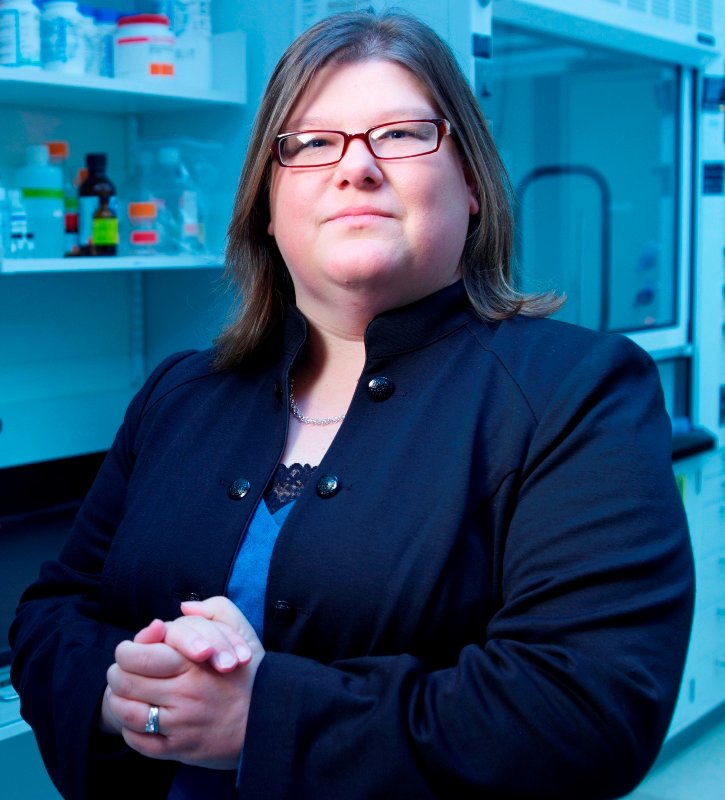 Jennifer graduated from Union in May of 1996 with a major in both Biology and Mathematics. In 2003, she received a Ph.D. in Microbiology from the University of Virginia. While in graduate school, Jennifer decided that she was more interested in the impact that science has on society rather than in conducting scientific research herself, so after graduation she went to law school, and in 2006, she received a J.D. from the University of Michigan Law School. From 2006 to 2008, Jennifer practiced intellectual property law with an emphasis on patent licensing and biotechnology business start ups in Seattle, WA with Perkins Coie LLP. Since 2008, she has been teaching Biotechnology and the Law, Patent Law, and first year Property Law at Washington University School of Law in St. Louis, MO. Jennifer’s research interests revolve around the ways in which society regulates scientific research, both from an intellectual property/business perspective, as well as from an ethical perspective. Jennifer is currently on the academic job market for a tenure track position at a law school. When asked if she felt prepared by Union while attending graduate school, Jennifer replied, “I have always felt that Union University gave me a very firm foundation on which to grow after Union. I have attended graduate school with students from some of the premiere universities in the country and never felt outclassed.”
Jennifer graduated from Union in May of 1996 with a major in both Biology and Mathematics. In 2003, she received a Ph.D. in Microbiology from the University of Virginia. While in graduate school, Jennifer decided that she was more interested in the impact that science has on society rather than in conducting scientific research herself, so after graduation she went to law school, and in 2006, she received a J.D. from the University of Michigan Law School. From 2006 to 2008, Jennifer practiced intellectual property law with an emphasis on patent licensing and biotechnology business start ups in Seattle, WA with Perkins Coie LLP. Since 2008, she has been teaching Biotechnology and the Law, Patent Law, and first year Property Law at Washington University School of Law in St. Louis, MO. Jennifer’s research interests revolve around the ways in which society regulates scientific research, both from an intellectual property/business perspective, as well as from an ethical perspective. Jennifer is currently on the academic job market for a tenure track position at a law school. When asked if she felt prepared by Union while attending graduate school, Jennifer replied, “I have always felt that Union University gave me a very firm foundation on which to grow after Union. I have attended graduate school with students from some of the premiere universities in the country and never felt outclassed.”
Regarding her future in biology, Jennifer would like to become a voice in the legal community for scientists. She said there are troubling attacks on scientific research and discourse from businesses that only see the financial bottom line, and she would like to help others look beyond the immediate financial gains promised by science to see the larger picture of how best to fund and direct scientific progress for the good of all people. There are many advancements in science that Jennifer hopes to see in the future, such as providing better health care by curing diseases, raising algae farms to provide bio fuels, and growing new drought-resistant crops to diminish hunger in third world countries.
Jennifer currently lives in St. Louis, MO with her husband of three years, Jeff. They want to start a family but have had difficulties, so keep Jennifer and Jeff in your prayers.
Dr. Cathie Scarbrough
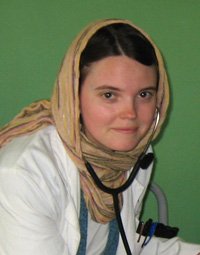 Dr. Cathie Scarbrough received the call to international medical outreach as a high school student. Upon joining the Union community, Dr. Scarbrough found an environment that she said not only provided her with a quality education, which served her well as a medical student, but also supported and encouraged her call. The Union environment was so supportive, in fact, that Dr. Scarbrough was able to travel on her first overseas trip to Costa Rica during her time there.
Dr. Cathie Scarbrough received the call to international medical outreach as a high school student. Upon joining the Union community, Dr. Scarbrough found an environment that she said not only provided her with a quality education, which served her well as a medical student, but also supported and encouraged her call. The Union environment was so supportive, in fact, that Dr. Scarbrough was able to travel on her first overseas trip to Costa Rica during her time there.
After receiving her undergraduate degree from Union, Dr. Scarbrough went on to attend medical school at the University of Tennessee Health Sciences Center. Despite this busy time in her life, Dr. Scarbrough was able to serve with several more teams abroad including her first medical trip to El Salvador. Over the years, she has served in Central and South America, West Africa, Southeast Asia, and Central Asia; each trip provided new and unique lessons and opportunities.
During a fourth-year medical school rotation, Dr. Scarbrough’s decision to pursue international medical work was cemented when she spent two months in northeast Thailand using her profession to further the Kingdom. She recently returned from fourteen months in Central Asia teaching at a family medicine residency program. “The best part was being a part of a community of believers abroad. The depth of friendships was unlike any that I had experienced previously. It was an amazing thing to work with other believers of all different backgrounds and cultures toward a common purpose - a real glimpse of the true kingdom.”
Now back in the United States, Dr. Scarbrough is working in a small community northeast of Birmingham, Alabama, as a family medicine physician doing both inpatient and outpatient work, although her service abroad isn’t over. When asked about her future, Dr. Scarbrough says, “I feel that since God has provided me with an education, support, and opportunities to go, I should go whenever and wherever He sees fit to lead. The more places I go, the more opportunities I see. After all, the Great Commission is a command, not an option.”
Tristan Abair
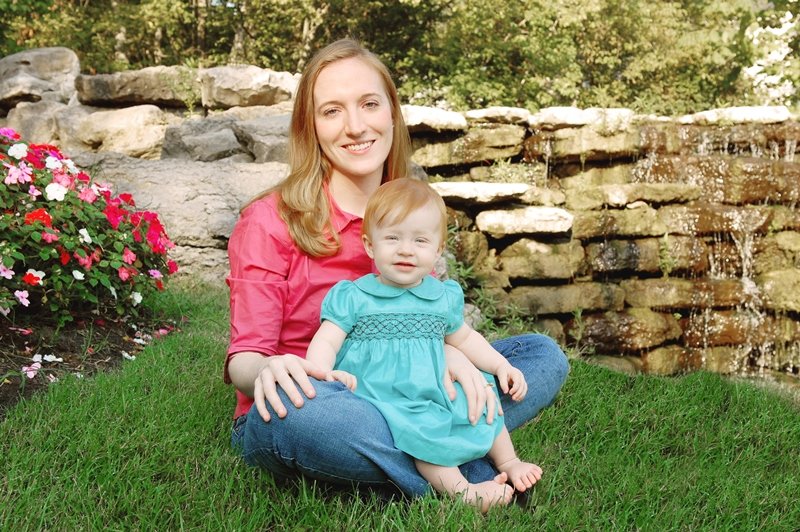 As a Biology Major at Union University, Tristan Abair was presented the Outstanding Biology Research Award for her research as an undergraduate student her senior year. She graduated from Union University in 2001, but where is she now? What is she doing, and how has her time at Union affected her today?
As a Biology Major at Union University, Tristan Abair was presented the Outstanding Biology Research Award for her research as an undergraduate student her senior year. She graduated from Union University in 2001, but where is she now? What is she doing, and how has her time at Union affected her today?
After graduating from Union, Tristan attended Vanderbilt University in Nashville to obtain her doctorate in cancer biology. She did her doctoral dissertation research on integrins, which are extra-cellular binding proteins on cells that allow communication, and tumor angiogenesis. Angiogenesis is the formation of blood vessels. She said that, "in order for tumors to grow and metastasize, angiogensis has to occur." Since blood vessels are made up of endothelial cells that are controlled by integrins, she found in her research that the expression of the integrin alpha 1 on endothelial cells leads to collagen-dependent cell adhesion, migration, tubulogenesis (formation of vessels within organs), and proliferation. She continued her research by identifying the specific regions of the integrin alpha 1 responsible for each of these functions in the endothelial cells.
After graduating from Vanderbilt, she began working for Physicians' Education Resource where she is a medical writer specializing in breast cancer. She writes content for publications and review articles and multmedia projects. She also prepares powerpoint presentations for use in Physicians' Education Resource sponsored meetings.
Tristan said that she loves what she does and that Union was very instrumental in her success both at Vanderbilt and at her job now. She went on to say that the biology and chemistry departments provided a solid scientific background that allowed her to excel in the midst of graduates from Ivy League schools. "Union allowed me to develop critical thinking skills and faith" which has impacted her work and relationships with colleagues.
Tristan is married to Jacob. They have a one-year old daughter, Briley, and they reside in Nashville, Tennessee.
Hannah Henson
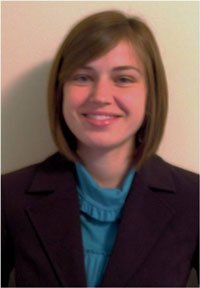 Hannah Henson is a 2009 graduate of Union University. As a freshman at Union, Ms. Henson took Dr. Weaver’s Principles of Biology class. This class was very influential in Ms. Henson’s decision to pursue a degree in Biology. She remembers the class as fun and interesting, while also putting into perspective how studying biology was also the opportunity to study God's creation.
Hannah Henson is a 2009 graduate of Union University. As a freshman at Union, Ms. Henson took Dr. Weaver’s Principles of Biology class. This class was very influential in Ms. Henson’s decision to pursue a degree in Biology. She remembers the class as fun and interesting, while also putting into perspective how studying biology was also the opportunity to study God's creation.
Now, she is a Ph.D. student at the University of Tennessee Health Science Center in Memphis, Tennessee. When asked how Union prepared her for her current work, Ms. Henson goes back to her first years as a PhD student and remembers the class work she completed as being very similar to work she completed as an undergraduate at Union. While these classes were fast-paced, she felt prepared because she had learned much of the information at Union. She says classes in Molecular Biology, Cell Biology, Genetics, and Developmental Biology were especially helpful in preparing her for her current work.
As part of the Integrated Program in the Biomedical Sciences at the University of Tennessee Health Science Center, Ms. Henson is on the Cancer and Developmental Biology track. Through this program she has the opportunity to conduct research at St. Jude Children’s Research Hospital studying the blood-brain barrier and blood-cerebrospinal fluid barrier. She joined a lab at St. Jude last May in the Chemical Biology and Therapeutics Department and says that she really enjoys working in the lab. She says she is finally get the chance to apply what she has learned in the classroom to everyday work.
Ms. Henson is especially appreciative of the faith-based education she received at Union. She remembers how well her teachers integrated faith and learning in the classroom and says that this type of education really prepared her for the challenges she has faced during graduate school as she has come to realize that the science community is very much of a mission field. In fact, one of her best memories of Union was a GO trip she had the opportunity to go on to Honduras during spring break of her junior year.
When asked about her future plans, Ms. Henson says she is open to all possibilities. For now she is enjoying the research involved with her Ph.D. work. She does hope to one day go on to do post-doctoral research and later teach biology at the college level while still being involved in research.
connect with us